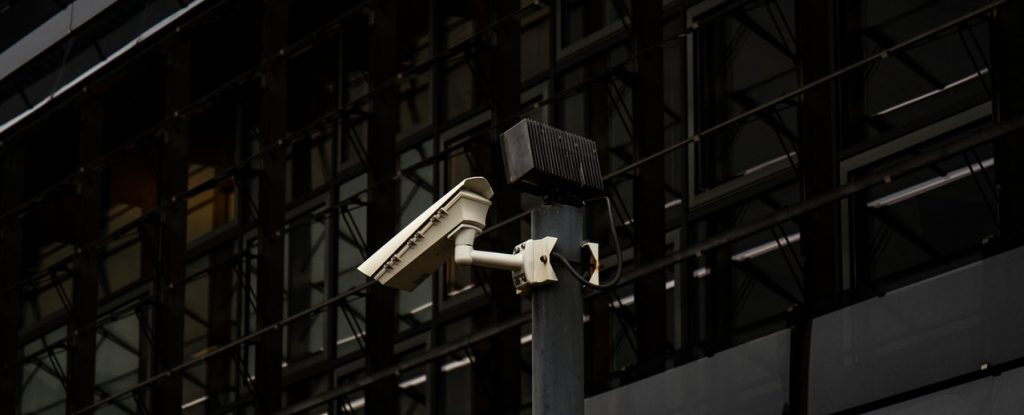Digital rights organizations in Eastern Europe ring alarms about the increasing spread of mass surveillance systems using connected cameras with facial recognition capabilities.
A mass surveillance system using thousands of facial recognition cameras was introduced in the Serbian capital Belgrade two years ago. Today, there’s growing concern and displeasure with the technology, in particular with human and digital rights organizations in the country.
The most controversy is related to the Huawei-based surveillance system, initially introduced in 2019 and sparking concerns about risks that facial recognition software brings.
In 2020, a project called “Thousands of cameras,” developed by the SHARE Foundation, a Belgrade-based digital rights organization provided a space for Serbian citizens to share their concerns over the mass surveillance project. “The total loss of anonymity represents a certain loss of our freedom – the awareness that we are under constant surveillance drastically changes our decisions,” the project’s website warns.
Whereas Danilo Krivokapic, director of the SHARE Foundation, told ZDNet, “Such infrastructure would enable mass surveillance of all citizens of Belgrade, having in mind that police already confirmed that they would use ID card databases for identification purposes… It seems that there are not enough sufficient safeguards to prevent the misuse of such power.”
In May 2020, when Serbian President Aleksandar Vucic told the exact number of people that were present at the rally in support of the Serbian government – 5,790 – a debate sparked as to whether the surveillance system was used to monitor and count the number of people in rallies and protests.
Later in July 2020, Amnesty International warned about “credible reports” of police use of facial recognition cameras in Belgrade to identify protestors in marches against COVID-19 lockdowns.
As Michal Kratochvil, CEO of IP intercom company 2N Telekomunikace, told ZDNet, the data from cameras can reveal a person’s location and movement which is disturbing in a democratic society: “Facial recognition data is, obviously, tied to users’ immutable physical characteristics which some people find intrusive, and there is an additional burden of ensuring compliance with data protection legislation such as GDPR.”
The SHARE Foundation’s initiative is a part of a larger opposition to the installation of biometric surveillance systems across Europe and also takes part in the ReclaimYourFace movement.
“It’s clear that deploying biometric mass surveillance on the streets of Belgrade would be unlawful and against the rights to privacy, since it can’t be considered as necessary and proportionate in a democratic society,” Krivokapic pointed out.
According to an official document from the Serbian Ministry of Interior, the total number of cameras used for the surveillance system around 8,100.
Meanwhile, in the Ukrainian capital of Kyiv, authorities are installing over 3,000 cameras on the main roads and highways in Kyiv. The system has analytical facial recognition features that prompted data privacy activists to warn about the overall lack of legal clarity when it comes to the technology.







